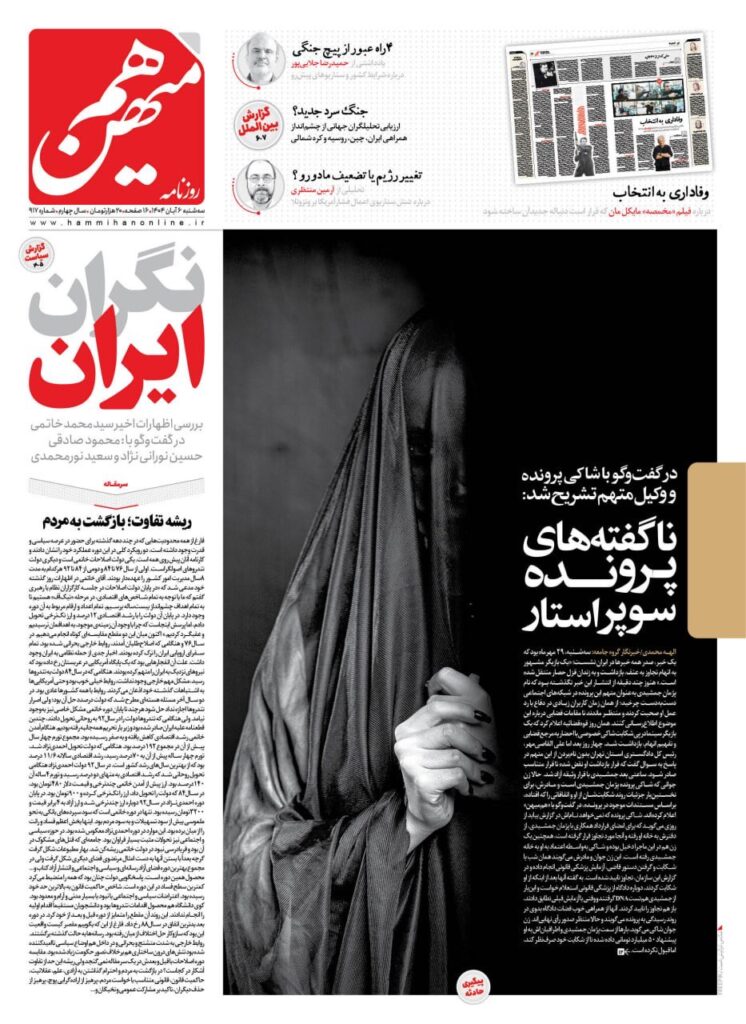The website of Ham-Mihan newspaper was shut down for the second time in the past four months. Simultaneously, the newspaper has been prohibited from uploading content on its social media networks.
Mohammad Javad Rouh, the editor-in-chief of Ham-Mihan, stated in an interview with media outlets: “Today, security institutions contacted us and said that the newspaper’s website has been taken offline, and they emphasized that until further notice, no content should be uploaded on the newspaper’s social media networks.” According to Ham-Mihan’s editor-in-chief: “The reason for shutting down the newspaper’s website has not yet been announced, but I believe it has no connection to today’s report regarding the case of Pejman Jamshidi.”

Mohammad Javad Rouh’s reference is to the publication of a report in the newspaper about the allegation of “rape” by an Iranian actor against a woman. Concurrent with the controversial reactions to the report’s content on social media, Ham-Mihan’s report was published alongside a photo of a woman wearing a chador, which drew sharp criticism from some religious activists on social media and an employee of Iran’s state broadcaster (IRIB). They described the image as “an insult to the hijab.”
The blocking of Ham-Mihan newspaper’s website occurred four months after a similar previous incident. Earlier, during the 12-day war between Iran and Israel, this media outlet’s website had been blocked for a period. Additionally, in recent days, Gholam-Hossein Karbaschi, the managing director of Ham-Mihan newspaper, in an interview with Eqtesad-e Iran (EcoIran), criticized security pressures on media and journalists, revealing that several Ham-Mihan journalists had been summoned by the Intelligence Organization of the Islamic Revolutionary Guard Corps (IRGC).
The blocking of news websites, the seizure of media outlets, and judicial and security actions against journalists represent a recurring pattern for disrupting free information flow in Iran. According to a report by the Defense of Free Flow of Information (DeFFI) organization, at least 95 Iranian journalists and media outlets experienced judicial and security confrontations in the first six months of 2025. In just six months, at least 46 new judicial cases were filed against journalists and media, at least six journalists underwent temporary detention, and in the trials held, Iranian journalists were collectively sentenced to 22 years and three months in prison and more than 50 million tomans in fines.
